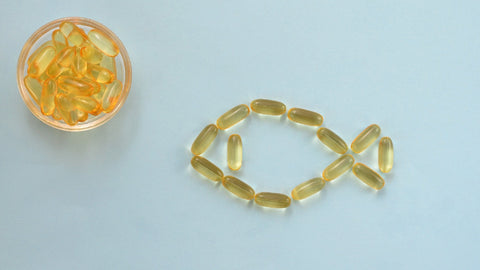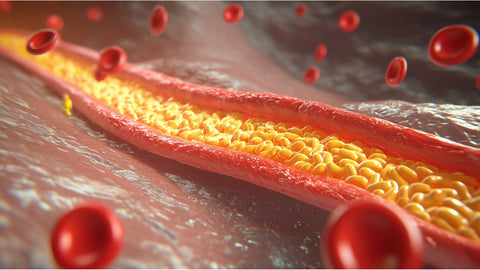
As well-known as it is nutritious, nettle is a plant that provides multiple benefits to our body . Although there are several species of nettle, the green or larger one is the one usually used in home remedies for all kinds of ailments and health problems.
In addition to being an ingredient used in cooking, it has purifying, astringent and diuretic properties. Below, we explain its benefits and how to use it.
What is nettle and what is it used for?
Also known as Urtica, due to its genus and belonging to the Urticaceae family, it is a plant characterized by its peculiar aroma and leaves covered with a layer of small stinging hairs that release an alkaline substance. Not in vain, it was also known as the blind man's plant , because "you don't need to see it to notice its particular texture."
Its remineralizing and purifying properties provide our health with multiple benefits, ranging from relieving digestive disorders , anemia or physical exhaustion, muscle ailments and rheumatism to dermatological problems. As a natural medicine, there are many treatments based on nettle due to its positive effects and high healing power.
Nutritional value
The nettle has always provided us with incalculable benefits thanks to the nutritional content of its green leaves which, although stinging, serrated and rough, provide a valuable and favorable contribution of calories, carbohydrates, proteins, vitamins and minerals . Among the nutrients of the nettle we find:
- Vitamins A, C and K.
- B vitamins.
- Calcium, iron and magnesium.
- Phosphorus, potassium and sodium.
- Sulfur and zinc.
- Polyphenols.
-
Plant pigments.
Medicinal properties of nettle
Given its multiple pharmacological properties , nettle contains important benefits that make it a plant used in many health and beauty products, making it a great ally for many. Some of the most significant are:
- Diuretic and draining properties.
- Purifying properties.
-
Remineralizing properties .
- Astringent paper.
- Strong analgesic power.
- Contains amino acids and flavonoids.
- Contribution of fatty acids such as linoleic acid and linolenic acid, as well as palmitic acid, hexadecanoic acid, stearic acid and oleic acid.

Health benefits of nettle
Although there are several species of nettles, Urtica major (dioica) and Urtica minor (urens) are the best known and are the ones that provide the most benefits, both for their effects on the skin and for their numerous other aids in different blood disorders.
Benefits for blood
It has a positive effect on blood circulation, helping to lower blood sugar levels and blood pressure . Therefore, if you suffer from conditions characterized by an abnormal decrease in the number or size of red blood cells or their hemoglobin level, nettle could be useful in correcting them.
For the skin
This plant has benefits in cases of psoriasis, common skin eczema and helps in acne-related treatments, so it becomes a facial tonic by refreshing, moisturizing and restoring the skin's pH with good results. Being astringent, it retracts tissues and can produce a healing, anti-inflammatory and anti-hemorrhagic action.
Helps against physical fatigue
In cases of fatigue or physical weakness, nettle helps strengthen our body by having antioxidant functions and improving the immune system .
For urination disorders
Nettle is used to treat urinary discomfort caused by the recurrent and uncontrollable desire to go to the bathroom at night.
Helps the body
Its kaempferol, caffeic acids (not to be confused with caffeine) and coumarins help reduce the effect of free radicals, while its analgesic level helps reduce the effects of all types of pain.
How to use nettle?
Both the stem and the leaf are used. Nettles can be used as an infusion, cream or even in drops.
- In infusions: as part of the treatment for arthritis, rheumatism or gout.
- As an extract or powder: it can be ingested with other food.
- As a rinse: for hair when treating conditions such as dandruff.
- As an ointment: in cases of hemorrhoids.
- In cream: for cuts, hives and skin inflammations.
Contraindications, risks and side effects of nettle
- Pregnancy or breastfeeding: consumption of nettle is contraindicated, either as an infusion or in capsule form.
- Pathologies: People with heart failure, hypotension (low blood pressure), kidney failure should not consume nettle.
- Recommended dosage: Treatment should last about three weeks.
- Risks: Because it contains histamine and formic acid, among others, it even gains that reputation of being a “weed” when it comes into contact with the skin, as it can alter its pH, cause a little inflammation or cause itching. But that doesn’t compare to its advantageous qualities.
Studies claim that excessive consumption of nettle is harmful to health, which is why a maximum of two infusions per day is recommended. You cannot risk handling the plant without at least wearing protective gloves and taking certain safety measures.
In short, the diuretic, muscular and circulatory stimulant action of nettle makes it a medicinal plant whose multiple benefits make it increasingly used.





Comments (3)
Excelente información
En el jardín de mi casa la siembro anualmente para consumo . En ensalada, para tortillas y te. Los beneficios para salud son notables – muy efectivos. Me Otorga más energía que las espinacas . Muy buen diurético suave.. similar al palmito africano para rejuvenecer la próstata, además excelente digestivo y depurativo. En forma de te aplicado en el rostro suaviza la piel y quita arrugas combinada con equisetum. También excelente.
Buena información